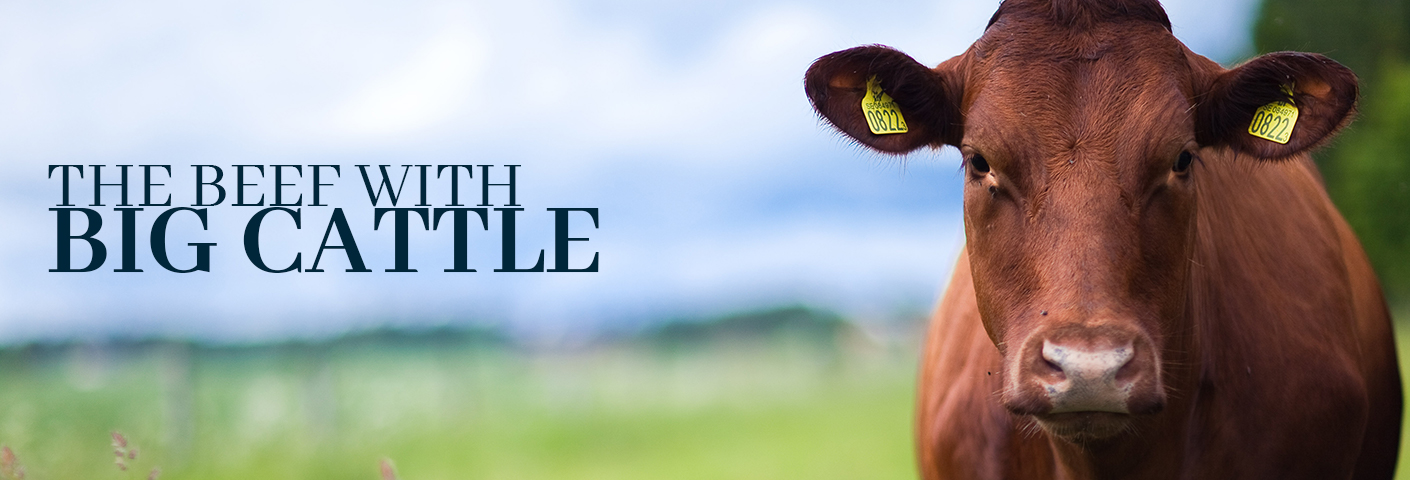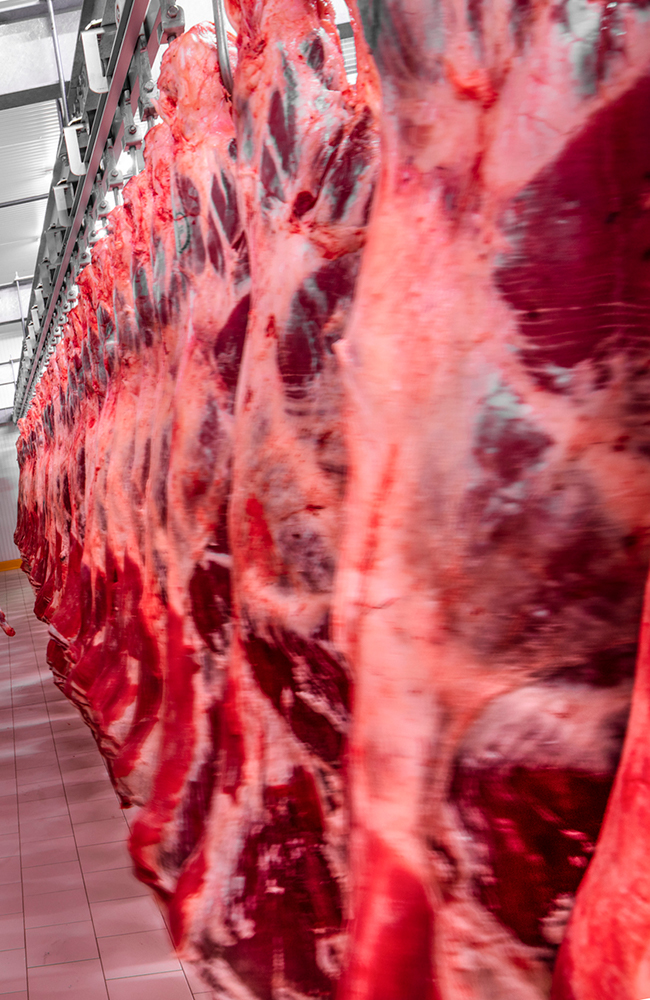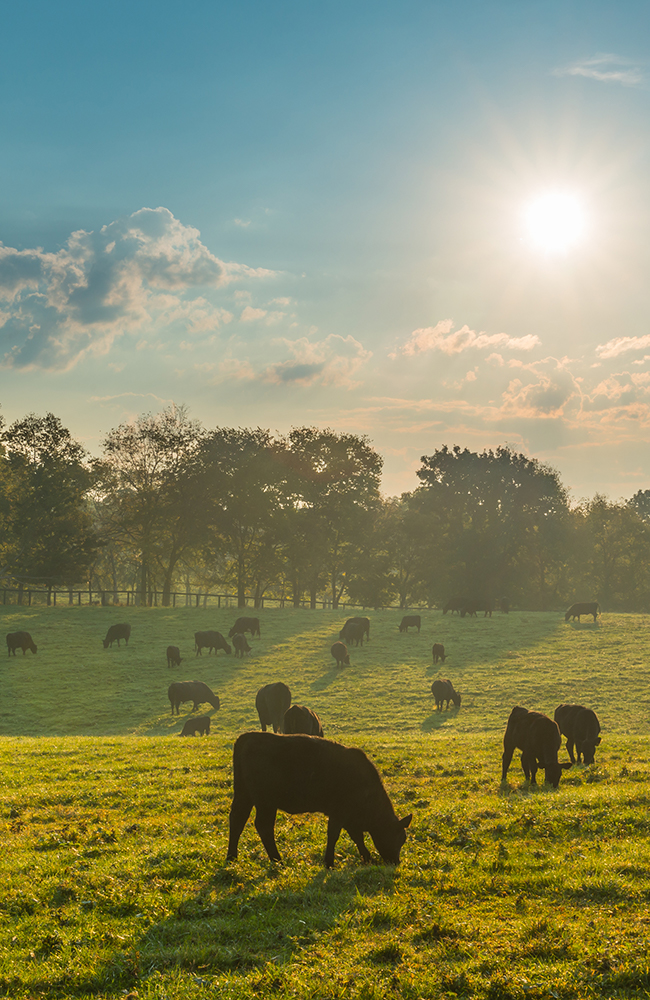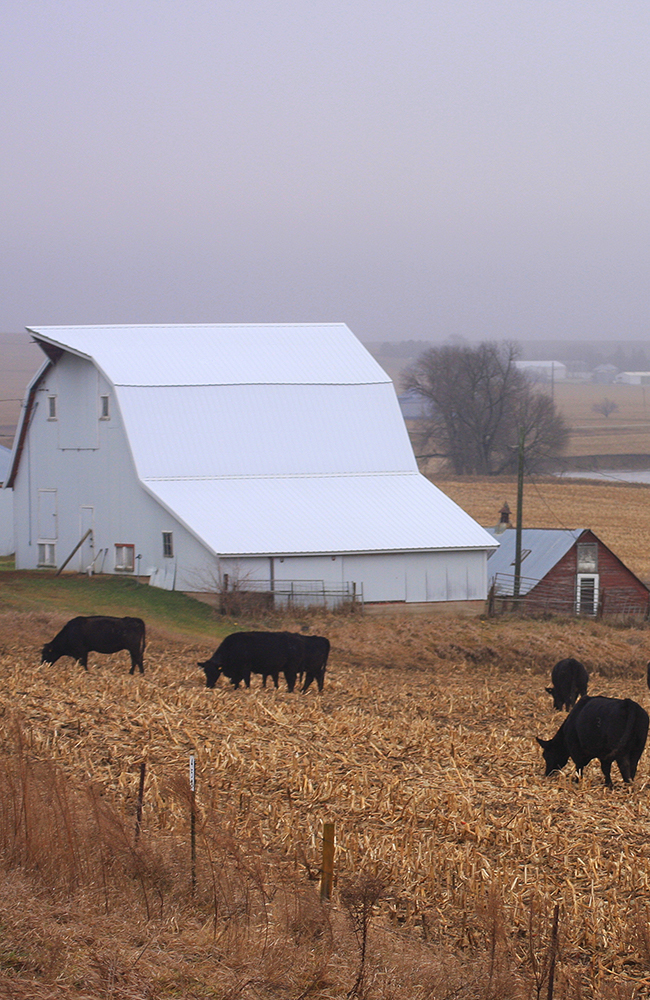
Big Cattle is using anti-competitive tactics to box out smaller producers, like many in Iowa. While independent farmers and ranchers are forced to sell livestock at dirt cheap prices, costs to consumers are climbing. And Big Cattle is pocketing the profits.
Through investigations and policy reforms Senator Grassley is leading the effort to shine a light on anticompetitive business practices, hold Big Cattle accountable, and restore fairness for independent livestock producers and consumers.
"Independent producers deserve to be paid what their beef is worth."

Eighty percent of America's beef processing industry is controlled by just four mega meatpacking corporations. Those corporations use their clout to purchase large volumes of cattle through secret contracts, leaving little market access for America's independent producers. The opaque business model has led to rising prices at the supermarket and rising profits for Big Cattle. All they while, traditional ranchers struggle to make ends meet.
Over the past 20 years, beef prices at the supermarket have more than doubled, while prices for live cattle have moved at less than half that rate. This is largely because 80 percent of America's beef processing industry is controlled by just four mega meatpacking corporations. Those corporations use their clout to purchase large volumes of cattle through secret contracts, leaving little market access for America's independent producers, like many in Iowa, who operate on the cash market. The opaque business model has led to rising prices at the supermarket and rising profits for Big Cattle. All the while, traditional ranchers struggle to make ends meet.
Cattle purchased on the cash, or “spot,” market often can’t be delivered to meat packers until at least two weeks after purchase, leaving ranchers on the hook for additional input costs, which quickly add up as corn prices climb.
The consolidation, lack of market transparency, lack of market share for cash purchases and delayed deliveries lead to lower prices and greater expenses for America’s independent producers.
Read more about Big Cattle’s business model here.

Senator Grassley has consistently pushed to shine a light on Big Cattle’s business practices through by calling for Justice Department and USDA investigations and praised USDA calls for price transparency. Following his repeated requests, the Senate Agriculture Committee held a hearing on cattle market transparency in June.
Senator Grassley partnered with Senator Jon Tester on bipartisan legislation improving transparency among meat packers who purchase livestock directly from independent producers. This bill will require that a minimum of 50 percent of a meat packer’s weekly volume of beef slaughter be purchased on the open or spot market, fostering greater competition in the cattle market.
Other proposals in Congress include establishing a public contract library, which would disclose how contracts between feeders and packers are structured.

Consolidation continues to be a concerning trend in the ag industry, threatening consumer choice and competition. Senator Grassley pushed U.S. Department of Agriculture and the Justice Department to investigate potential market manipulation and other anticompetitive practices by the nation’s largest meat packers, and joined colleagues in seeking an update from investigators.
As Ranking Member of the Senate Judiciary Committee, Grassley is led a hearing in July to examine competition in the meat packing sector, as he did with the seed and agrochemical industry in 2016.
Earlier this year, Grassley co-authored legislation to create a new special investigator at USDA tasked with preventing and addressing anticompetitive practices in the meat and poultry industries
In 2020, Grassley supported legislation that established a grant program to help small meat and poultry processers upgrade operations to better compete with Big Cattle. USDA is building on this work with a July announcement to expand meat and poultry processing capacity as part of efforts to increase competition and level the playing field for family farmers.

11.16.2021 | Grassley Battles Big Cattle Lobbyists
06.11.2021 | Q&A: Cyberattacks in America
03.24.2021 | Grassley: Cattle Producers are Counting on us
08.04.2020 | Speech on Beef Market Manipulation
05.13.2020 | Speech on Transparency in the Cattle Industry